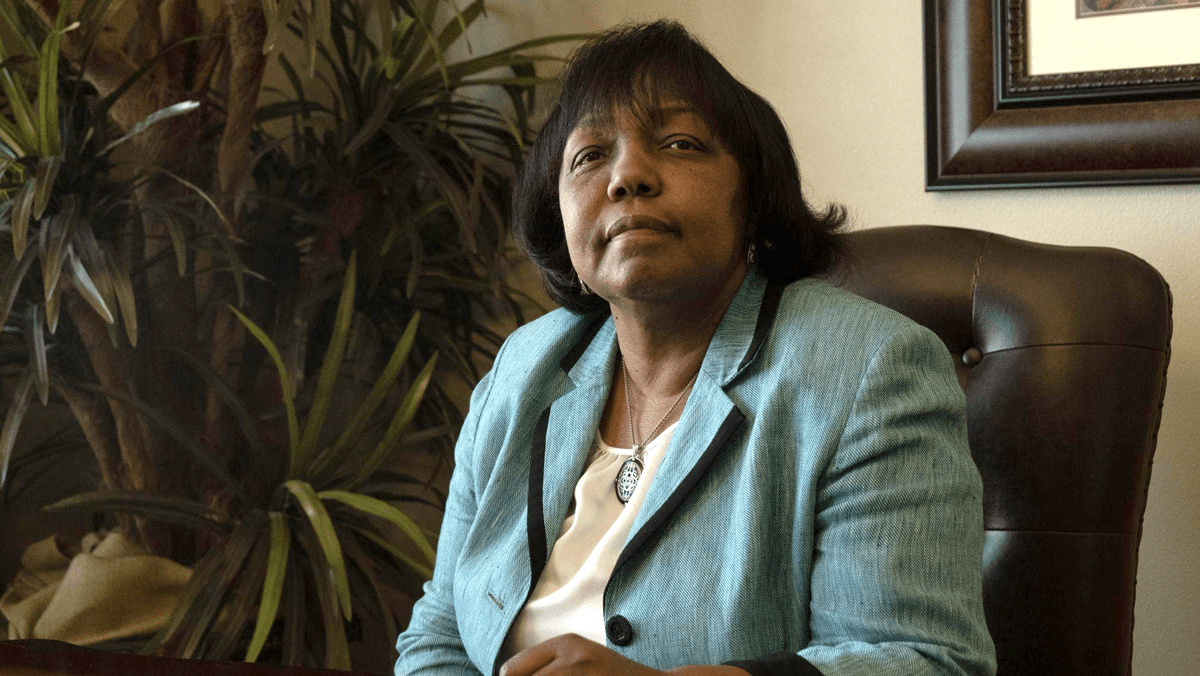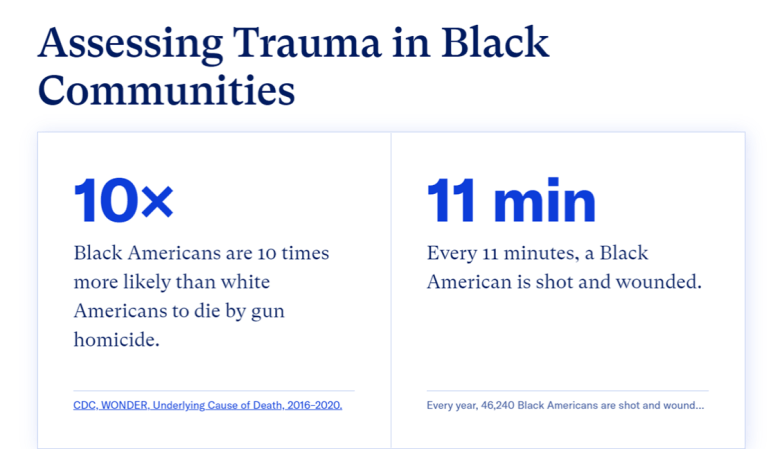Last Updated on March 8, 2023 by BVN
Daniel’s aunt, Dr. Judy White, poses for a portrait in her home in Beaumont, California. She says she is leaning on God as she grieves. (Aryana Noroozi for Black Voice News Newsroom / CatchLight Local) July 12, 2022
June 1, 2022 forever altered Daniel’s family’s lives. Since then, they have spent most of their time trying to process the loss of Daniel and at the hospital with Daelyn, who remains in critical condition.
The family wanted to share his story. Dr. White approached Black Voice News. This narrative reflects their voices and the concerns they raised about both the media’s portrayal of Dexter as gang affiliated, and the impact of Black on Black crime.
Daniel’s aunt, Dr. Judy White, former Superintendent of Schools for Riverside County and Moreno Valley and an educator for over 40 years, says she cried when she learned of the children killed in the shooting in Uvalde, Texas on May 24, but didn’t fully realize the pain their families’ were enduring, until she lost her nephew a week later.
Daniel’s family is frustrated with the way some media outlets have portrayed him and the incident that took his life.
White says they were taken aback when reading headlines describing the tragedy as “shoot out” and “basketball battle.”
“We felt as if the media was portraying it as our youth can’t even play basketball without arguing and fighting,” White said. The police officer on the scene confirmed there were no guns found on the scene, indicating a “shootout” was impossible.
“Part of this comes from the relief in heart that comes from sharing truth; and when the truth is not portrayed accurately it impedes the healing,” White said.
In addition to the burden of misrepresentation of her nephew by the media, White says she found herself in a moment of reflection while composing a Twitter post asking for prayers for her family. As she tried to honor her nephew in a 280 character count, White said she started to wonder why there was a greater burden on the Black community to justify that their kids were “good” kids after their lives were taken.
She asks why society has evolved to a place where the loss of a loved one feels like it needs justification. “I encourage us as a society to come closer to the fact that, when any life is lost, that’s a human being that’s lost,” White said.
The impact of gun violence in Black communities
Data shows the Black population in America bears a disproportionate burden of gun violence and gun related deaths. Everytown USA reports that every 11 minutes, a Black person is shot and wounded in America and that Blacks are 10 times more likely than whites to die by gun homicide.
Everytown USA also reports that Black people in California experienced the highest gun related death rate in the nation during the five year period of 2016 through 2020.
Despite the vulnerability of those in Black communities to gun violence, In 2010 VPC reported “there was no national data on the prevalence of drive-by shootings, those who commit them, those who are killed and injured as a result of them, the firearms used, where they take place, or at what times they most often occur.” The same holds true today.
What has changed, however, is that in 2020, CA Governor Gavin Newsom carved out $200M of the state budget to provide grants for violence intervention programs intended for local community training and building relationships with those in communities most at risk of being either shot themselves or of shooting someone else. Millions have been granted to local organizations around the state, including here in the inland region, through the state’s CalVIP Program.
Black on Black Crime
White also calls for a shift in thought in the Black community when it comes to Black on Black crime.
“The community needs to be as incensed on Black on Black crime as we are about Blue on Black crime,” White says. “We can't say that we accept it more when we are killed by each other, to me we almost should accept it less. Nobody should be killing.”
When this concern was brought to the attention of the Vice President of the NAACP San Bernardino Chapter, Che Wright, she voiced a similar opinion.
“On top of looking over our shoulders at the PD, we’re fighting each other,” Wright said.
“Shame on us for not having more of a dialogue about what real endeavors we can do to start making sure that we make it not cool,” Wright said.
“We're the ones who make trends all around the world, so how is it that collectively, we can't go into our communities and cease fire?”
Wright describes a number of “amazing and unfortunate reasons” she believes this stems from, including parents working to put food on the table, leading to idle time for their children, to a system that may have failed a child because they “never had the mentorship, or community love or guidance” to prosper within it.
She believes it starts with the destigmatization of these challenges and encourages open community dialogue. Wright thinks that this kind of conversation on the community level has diminished due to division.
“That's why they used to say it takes a village,” Wright said. “A village was an open opportunity for us to check each other, and hold each other accountable for the places where one was lacking for someone else to come in, who was equipped and capable to help.”
Wright says key solutions lie in increased financial literacy and sustainability through various avenues. She believes the ability to provide and live sustainably can decrease aggression. She stresses the importance of creating programs for Black men, specifically. These programs would help the community understand their options for financial sustainability, beyond solely pursuing education.
Wright developed and piloted the Live Program in Dallas, Texas. The program equips students with basic fundamentals of business and entrepreneurship while providing mentorship with the opportunity of a fellowship following completion of the program.
Wright says resources and funding are available and stresses the importance of organizing and moving swiftly into the action stage.
The Daniel Dexter Story
Part 1: "Did you hear that? I think it was a gunshot!"
Part 2: Processing Loss With Burden....A Young Life Cut Short By Gun Violence
Part 3: Memories and Reflections...A Family Copes With Loss Due to Gun Violence




